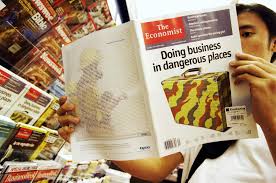How is the world grappling with the Covid-19 Pandemic, especially in the realm of economics?
The magazine the Economist presented a webinar on July 30, 2020, titled “The Inside Story: The Impact of Covid-19.” Helen Joyce, executive editor for events at the Economist, interviewed a science writer and an economics editor. This is part two of a two-part summary of that webinar.
The second panellist was Henry Cur, an economics editor. He said the economic crisis precipitated by the pandemic is markedly different from “garden variety recessions.”
“The scale of unemployment is greater than the 2008 downturn,” he said, “and central governments are more willing to bail out individual households.” The scale of the hand-outs is “on the order of a universal basic income.”
The movements in financial markets have been greatest around Covid-19 vaccine and drug development. Cur did not know if developed nations “will go back to a 90 percent economy. He thought the recovery would take longer than most estimates, “and some jobs aren’t going to come back at all.”
The question of government bailouts for certain businesses or industry sectors led to a discussion of moral hazard. Moral hazard occurs when a company has an incentive to increase its exposure to risk because it does not bear the full costs of that risk. Cur said that helping businesses hit by Covid-19 is a moot point because “no one thinks businesses could have prepared for this.”
Should all firms be bailed out? “The governments might want some firms to die,” he said, “in other words, they might want a permanent reallocation of resources.”
Optimists expect a V-shaped recovery, but it seems less likely the U.S. will have one. “China now has a bigger economy than before the pandemic,” Cur noted.
The pandemic drags on and people continue to shelter in place. “Habits take four months to form,” he said, and this could alter consumer behaviour going forward. “Will that permanently depress the habit of going to the theatre?”
Cur wondered about the effect of the pandemic on human capital. “Will there be a ‘Covid cohort’?” in emerging markets, the pandemic is having a worse effect because the education of young people is being interrupted.
Another unresolved question is, “how will movement through the supply chain be affected?” and how much ripple effect will occur.
“There is a flowering of research on the economic impact,” Cur said. “There’s a lot of fresh thinking. Six months ago, no one foresaw U.S. unemployment stipends being 75 percent of salary.”
He foresees closer cooperation between fiscal and monetary policy. Fiscal policy is the use of government revenue collection (taxes or tax cuts) and expenditure (spending) to influence a country’s economy. Monetary policy is adopted by a nation’s central bank to control either the interest rate or the money supply to influence a country’s economy. Going forward, “Something called ‘slowbalization,’ with growth rates under 1 percent, may become the norm.”
The pandemic has accelerated the trend to a low-interest-rate world. “The debt service costs are lower, due to low interest rates.” For example, Japan has an enormous debt load, 200 percent of the GDP, yet they are “doing okay,” he said. Things will start to get bad, however, once inflationary pressures kick in.
There is not a sharp trade-off between virus and the economy. People have common sense and a “wide open” policy “won’t help economically because people rein in their spending.” The confidence in the future is simply not there yet.
In closing, Cur said that “everyone is astonished by policy capacities of advanced economies.” The rich world has an easy time of it for economic policy “because they control the world’s reserve economy.”♠️




